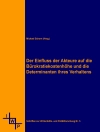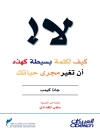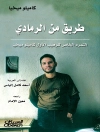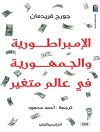Sumaya Farhat-Naser is well known as an ambassadress of the Palestinian cause and a witness to the bitter reality of occupation in her country.
‘Daughter of the Olive Trees’ was written in a context of escalating violence and an increasing lack of prospects. It portrays the crushing experiences of the Palestinians in the shadow of the so-called peace process and provides insight into Palestinian society, its political and social structures and the problems of its leadership. It gives an insider’s account of the work for peace undertaken by Palestinian and Israeli women, documents ambitious dialogues and conflictual discussions, and analyses myths of history and the perception of them on both sides.
The author has thus painted a unique picture of the every-day efforts to achieve peace and justice, which the media overlook. These efforts create the tissue of relations upon which political and social communication and rapprochement will one day depend.
Giới thiệu về tác giả
Sumaya Farhat-Naser was born in 1948 in Birzeit, not far from Jerusalem. She attended the German boarding-school Talitha Kumi in Beit Jala near Bethlehem. She studied biology, geography and educational science in Hamburg and has a doctorate in applied botany. She taught botany and ecology at the Palestinian University of Birzeit from 1982 to 1997, and was awarded an honorary doctorate by the University of Münster in 1987. From 1997 to 2001 she was Director of the Palestinian Jerusalem Center for Women, and since 2000 she has been on the board of the Global Fund for Women in San Francisco. She resumed her teaching in Birzeit in 2002.
Her biography ‘Thymian und Steine’ (‘Thyme and Stones’) was published in 1995 by Lenos Verlag.
She has received many distinctions for her work for justice and peace: the Bruno Kreisky Prize for Human Rights (1995), the Protestant Book Prize of the German Association of Protestant Libraries (1997), the Mount Zion Award for Reconciliation (1997), the Augsburg Peace Prize (2000), the Hermann Kesten Medal of the German P.E.N. Center (2002) and the Bremen Solidarity Prize (2003).












